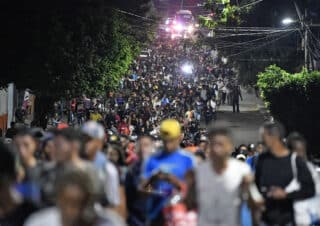This is reaction to two columns—Solita Collas-Monsod’s “Caught between plunderers and saboteurs” (Inquirer, 9/3/11) and Mahar Mangahas’ “Economic growth isn’t ‘development’.” (Inquirer, 9/3/11) The articles reflect quite disparate views about what we want to measure about society and how to measure the nation’s economic and social performance. I have been working and teaching on questions of sustainable development and growth in Germany and the United States, and I am currently residing in Davao. I developed the UN System of green accounting and tested its use and usefulness, among others, in the Philippines.
What do the indicators tell us?
Monsod rightly points out that the national accounts have all the indicators, including its gross domestic product (GDP), to warn us about short-term economic trends.
In contrast, Mangahas sounds the trumpet of GDP bashers, notably for measuring society’s well-being. GDP was never designed, though, to measure well-being, or in his words, the good and bad feelings of people about their situation. Attempts to count and add up these feeling in “indices” of welfare, quality of life, sustainable or human development, and even gross national happiness, are judgmental. Selecting hardly comparable indicators of health, wealth, education, safety, culture, trust in government from “social weather stations” lacks transparency and produces data of doubtful quality. Compare this to the checks and balances of the national accounts whose quality is continuously checked by the national statistical services. No wonder Mangahas seeks the help of “advocacy” to “nurture collection of data.” Such nurturing is prone to data manipulation for arguing hidden and open agendas that promise “continuity of streams of well-being into the future.”
As I contend in my forthcoming book on “Sustainability Economics” (Routledge), GDP bashing might throw out the baby with the bathwater, the baby being the national accounts and GDP the bathwater. The national accounts measure regularly, among others, the economic activity of industries and households, (un)employment and the distribution of income and wealth. Why then not go right into the accounts and adjust them? Greening the national accounts does this for those concerns that—contrary to well-being or happiness—are measurable but are not or not adequately covered in the conventional accounts. The UN System for Integrated Environmental and Economic Accounting measures the cost of natural resource depletion and environmental degradation. Its objective is to assess the environmental sustainability of economic performance and growth—rather than the sustainability of an opaque development notion.
The Philippines was one of the pioneers of such accounting; unfortunately it seems to have abandoned this endeavor. Concerns about quarterly changes of GDP seem to rank higher than long-term economic prospects.
—PROF. PETER BARTELMUS,
pbartelmus@nyc.rr.com


